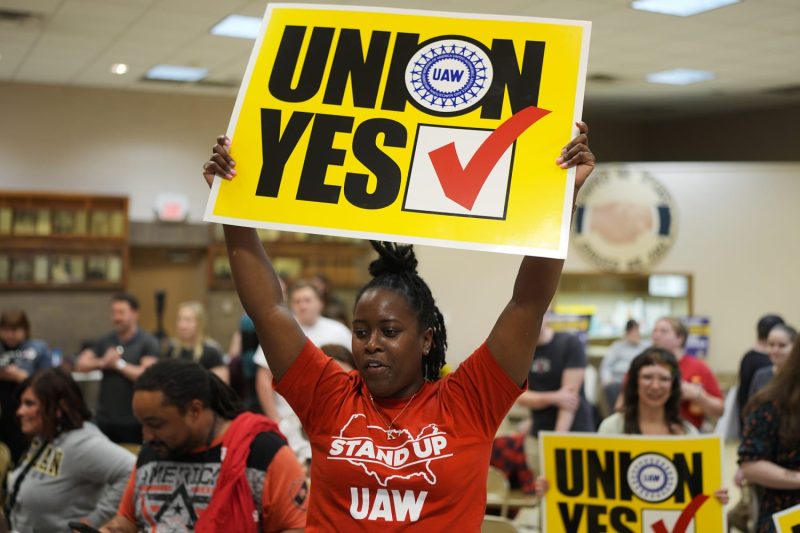The United States Autoworkers Union Seeks Tough Victory at Mercedes Plant in Alabama
The United Auto Workers (UAW) union is embarking on a challenging endeavor to unionize the Mercedes-Benz manufacturing plant in Alabama. The stakes are high, as successfully unionizing the plant would represent a significant win for the UAW and potentially reshape labor relations in the American automotive industry.
The UAW has a storied history of representing autoworkers in the United States, dating back to its formation in the 1930s. Over the decades, the union has fought for fair wages, benefits, and working conditions for its members, earning a reputation as a staunch advocate for American workers.
The decision to target the Mercedes plant in Alabama is strategic, as the facility is part of the German automaker’s global production network. A successful unionization effort at such a high-profile plant would send a strong message to Mercedes-Benz and other foreign automakers operating in the United States.
However, the road to unionization will not be easy. Labor laws in the United States are not as favorable to unions as those in many other countries, making it challenging for workers to organize and collectively bargain with their employers. Additionally, anti-union sentiment is prevalent in some parts of the country, including Alabama, where right-to-work laws limit the ability of unions to collect dues from non-members.
The UAW will need to navigate these challenges carefully, employing a combination of grassroots organizing, legal strategies, and public relations efforts to build support among Mercedes-Benz autoworkers and the broader community. The union will likely highlight the benefits of unionization, such as higher wages, better benefits, and a voice in the workplace, to win over skeptical workers.
In response, Mercedes-Benz is expected to mount a vigorous anti-union campaign, as the company has historically opposed unionization efforts at its facilities. The automaker may argue that a union could harm its competitiveness and lead to job losses, a common refrain among anti-union employers.
Despite the obstacles, the UAW is determined to press on with its unionization drive at the Mercedes plant in Alabama. Success would not only benefit the autoworkers at the facility but also bolster the UAW’s position in the automotive industry and demonstrate the continuing relevance of unions in the American labor movement.
As the battle for unionization unfolds at the Mercedes plant, all eyes will be on the UAW and its efforts to secure a historic victory for American autoworkers. The outcome of this struggle will have far-reaching implications for the future of labor relations in the United States and the ability of workers to collectively advocate for their rights in the face of powerful corporate interests.



























